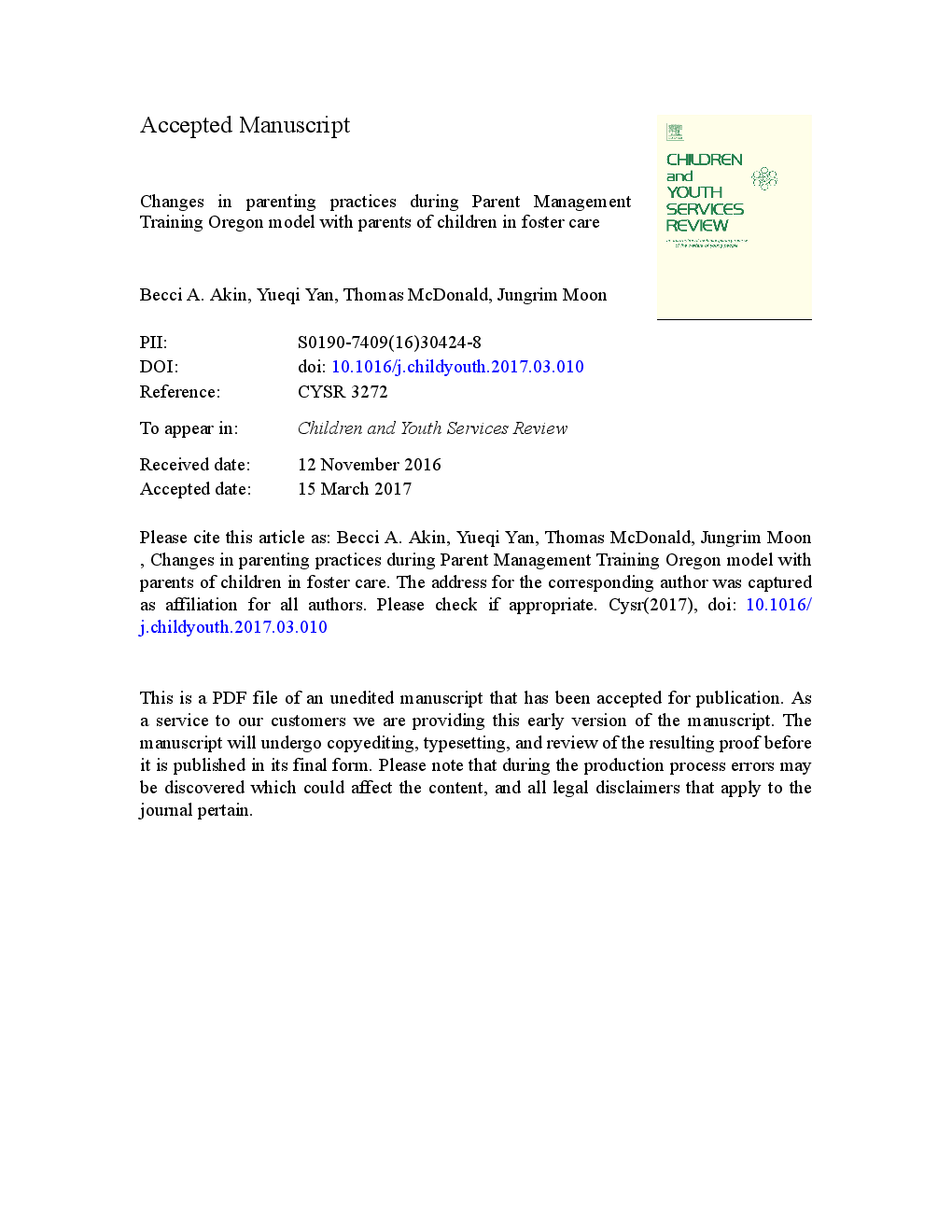ترجمه فارسی عنوان مقاله
تغییرات در شیوه های والدین در مدرسه مدیریت والدین اورگان با والدین فرزندان در مراقبت های پرستاری
عنوان انگلیسی
Changes in parenting practices during Parent Management Training Oregon model with parents of children in foster care
| کد مقاله | سال انتشار | تعداد صفحات مقاله انگلیسی |
|---|---|---|
| 131658 | 2017 | 47 صفحه PDF |
منبع

Publisher : Elsevier - Science Direct (الزویر - ساینس دایرکت)
Journal : Children and Youth Services Review, Volume 76, May 2017, Pages 181-191
ترجمه کلمات کلیدی
آموزش والد رفتاری، آموزش مدیریت پدر و مادر اورگان، نگهداری فرزند، والدین، تحقیق مداخله،
کلمات کلیدی انگلیسی
Behavioral parent training; Parent Management Training Oregon; Foster care; Parenting; Intervention research;

